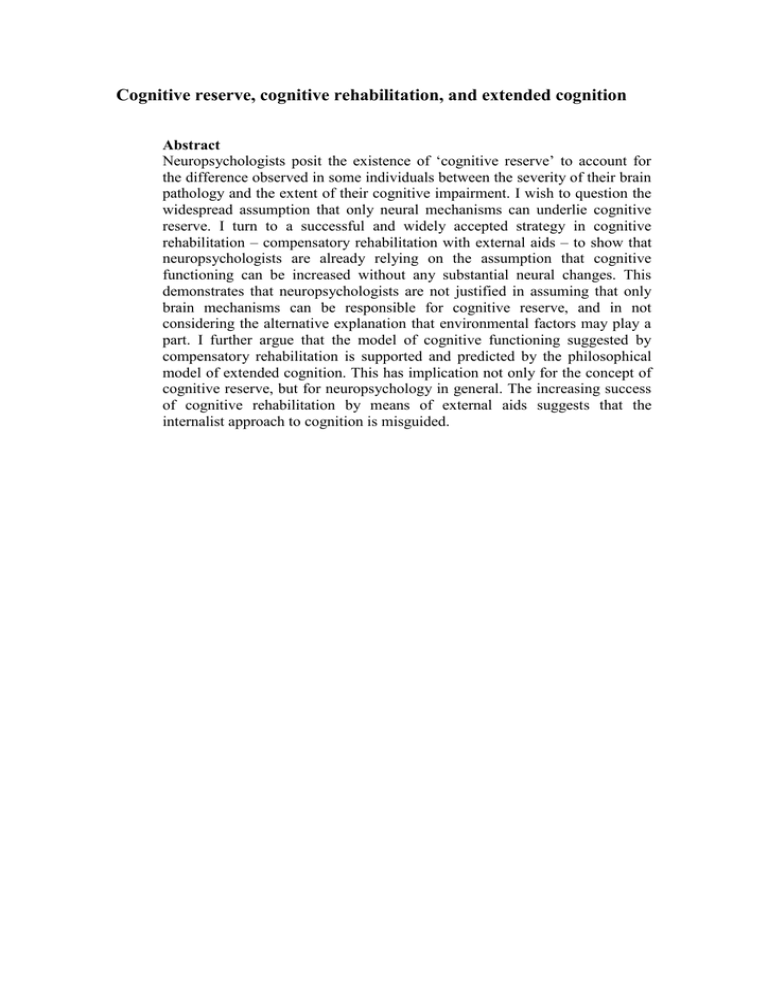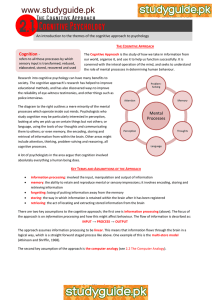Cognitive reserve, cognitive rehabilitation, and extended cognition
advertisement

Cognitive reserve, cognitive rehabilitation, and extended cognition Abstract Neuropsychologists posit the existence of ‘cognitive reserve’ to account for the difference observed in some individuals between the severity of their brain pathology and the extent of their cognitive impairment. I wish to question the widespread assumption that only neural mechanisms can underlie cognitive reserve. I turn to a successful and widely accepted strategy in cognitive rehabilitation – compensatory rehabilitation with external aids – to show that neuropsychologists are already relying on the assumption that cognitive functioning can be increased without any substantial neural changes. This demonstrates that neuropsychologists are not justified in assuming that only brain mechanisms can be responsible for cognitive reserve, and in not considering the alternative explanation that environmental factors may play a part. I further argue that the model of cognitive functioning suggested by compensatory rehabilitation is supported and predicted by the philosophical model of extended cognition. This has implication not only for the concept of cognitive reserve, but for neuropsychology in general. The increasing success of cognitive rehabilitation by means of external aids suggests that the internalist approach to cognition is misguided.




